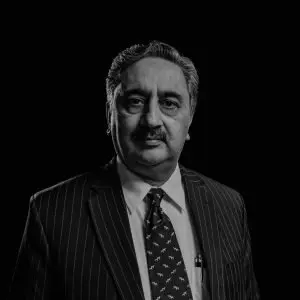By Sajad Hameed Yousafzai
Honorable Justice Athar Minallah in his dissenting note in a case, wherein the decision of the Parliamentary Committee for the appointment of judges was set aside by the Peshawar High Court, has made an attempt to urge the judiciary for self-examination. In this case, the Judicial Commission sent certain names for new appointments in the Peshawar High Court to the Parliamentary Committee.
The Committee convened a meeting and duly deliberated over the approval of the nominees. Three of the nominees were approved while the rest three were rejected with direction that all five district and sessions judges should be considered for the appointments. This decision of the Committee was challenged in the PHC wherein the court annulled the same and approved the names of the rejected nominees as judges of the High Court. The said decision of the PHC was challenged through a petition in the SC which was placed before a larger bench of three judges. The decision of the SC came up as 2/1 with Justice Minallah dissenting.

When we examine our judicial history, we find that our judiciary has sided with unconstitutional regimes rather than supporting the Parliament during critical democratic moments. Our history is marred by dark episodes. Our judiciary packed elected governments and sent representatives to the gallows to legitimize the dictatorships. In this series, two cases will never be forgotten—Tamizuddin and Dosso cases—wherein the Doctrine of Necessity was formulated to validate unconstitutional acts. The constitution was rewritten many times to give effect to the orders of the unconstitutional authorities. Justice Minallah regrets these dark episodes of our judicial history and attempts to awake the conscious of the judiciary to orient its direction in line with the Constitution. The part of his dissenting note, wherein he discusses the independence of judiciary is a considerate, thought-provoking and deeply contemplative for the judiciary. In this part of his note, he holds the judiciary accountable for the unconstitutional adventurism, ranging from validation of marshal laws to packing democratically elected governments and sending elected PMs to the gallows.
He asserts that judicial independence goes beyond merely being free from the executive or any external force: the judges should also be free from any pressure exerted by their peers. He points out that our history suggests that some of the judges asserted influence over their colleagues to obtain favorable judgments on the behest of dictators. In these instances, the judges did not uphold the independence of judiciary. Similarly, when appointments of judges were made during martial law periods on the behest of dictators, the judiciary again did not frown upon it, rather it was accepted happily. Throughout our history, there has been no friction on this in our judicial jurisprudence about the independence of judiciary. The judiciary allowed the illegitimate usurpers to usurp the power. Our judiciary has validated unconstitutional acts of the dictators and has displayed unnecessary leniency in this regard for the dictators. The Courts did not even punish the commander posted in Multan who issued a contempt notice to judges of the LHC for violating “martial laws.”
However, when it comes to directions or opinions rendered by public representatives or the Parliament, our judges frowns upon them and annuls them invoking the defense of the doctrine of the independence of the judiciary. He says that the Committee represents “…represents the litigants and the people, who are the sole stakeholders of the judicial organ of the state. It is their interest that is of paramount importance because they suffer when an appointment is not made on merit.” He further emphasized that the jurisprudence laid in Munir Bhatti case, a case which discusses the purpose of Article 175-A of the Constitution and independence of judiciary in the appointment judges, is binding on this court that needs to be revisited as the proper assistance was not extended to the Court. He further grounded his opinion by saying that the Committee has a unique feature which virtually represents the entire Legislator—representative body of the entire nation.
The opinion of such a democratic body cannot be readily and straightaway characterized as an attack on the independence of the judiciary. The opinion or directions of the Committee shall be honored as long as they are in accordance with law. He further comments on the appointment of judges that it shall be done on the bases of merit and the decision of the Commission shall not be affected or influenced by the opinion of the Chief Justice, rather the Commission as a whole should form an opinion independent of any influence in the course of the appointment of judges. Further, the Commission and the Committee are not adversaries but rather they are independent bodies which are mandated with the appointment of judges to constitutional courts. They must form their independent opinion in accordance with law and one should respect the opinion of another. In this background, Justice Minallah upheld the decision of the Parliamentary Committee with regard to the appointments of judges and allowed the petition. A dissent is not binding in its nature but today’s dissent can be tomorrow’s majority opinion.
The writer is a practicing lawyer of High Court Islamabad . He can be reached at sajjadhameed150@gmail.com.




